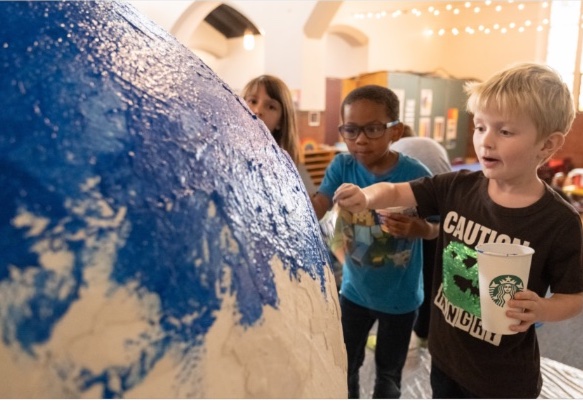ADMISSIONS >
Why PUCS?
Families apply to Pittsburgh Urban Christian School (PUCS) because they want their children to grow in a community that cultivates caring hearts and curious minds. The application, tuition, and financial aid process help families to understand how PUCS will help to shape their child’s future.
1. Academic Excellence with Personalized Attention
At PUCS, success is about more than grades—it’s about equipping students to think deeply, serve others, and approach the world with wisdom and integrity.
- Engaging, Integrated Learning: Students connect math, science, history, literature, and faith in meaningful ways, seeing how knowledge shapes the world.
- Faith & Critical Thinking: We encourage students to use a faith-driven perspective and the scientific method to explore big ideas.
- Small, Multi-Grade Classrooms: Kids learn at their own pace, develop leadership skills, and build strong peer connections, with an average of just 14 students per class.

2. A Safe, Supportive Community in an Uncertain World
Families are seeking stable, nurturing alternatives for their kids. PUCS provides a consistent, supportive space where children feel safe, valued, and encouraged to grow.
- A Culture of Kindness: Every student experiences respect, belonging, and emotional support.
- Emotional & Social Growth: We teach conflict resolution, resilience, and leadership skills so kids thrive both in school and in life.
- A Steady Choice for Families: While public schools face uncertainty, PUCS remains a strong, faith-centered community families can trust.
3. Learning Beyond the Classroom
At PUCS, learning doesn’t just happen at a desk—it happens on community trips, in service projects, and through hands-on discovery.
- Frequent Community Experiences: From science explorations to historical tours and outdoor adventures, learning comes to life beyond the classroom.
- Service-Oriented Education: Students use their gifts to serve others, developing a heart for leadership and compassion.
- A Joyful, Engaging School Experience: We ignite curiosity and creativity, making learning meaningful and fun.
4. A Christ-Centered Education That’s Welcoming to All
At PUCS, Christian values shape the way we teach, nurture, and guide students. We welcome families who may not practice faith at home but are open to their child learning about God in a loving, inclusive environment.
- Guided by God’s Love & Wisdom: Faith and reason work together—inspiring how we learn, interact, and make decisions.
- Faith & Science in Harmony: We encourage students to explore scientific discovery through a lens of curiosity and faith.
- Accessible & Affordable: We offer scholarships and tuition assistance to make a PUCS education possible for more families.
5. High-Quality Private Education That’s Within Reach
At PUCS, we believe that an excellent, faith-centered education should be accessible—not exclusive.
- A Private School Education Without the Elite Price Tag: While many private schools in Pittsburgh charge $15,000 or more per year, PUCS provides the same small-class, high-quality experience for less than $10,000.
- An Investment in Your Child’s Future, Not Just Their Education: Our goal isn’t just strong academics—it’s to help students grow into compassionate, confident, and service-minded leaders.
- We Work with Families to Make It Possible: PUCS offers scholarships and tuition assistance.
Train up a child in the way he should go, and when he is old he will not depart from it.
Proverbs 22:6


